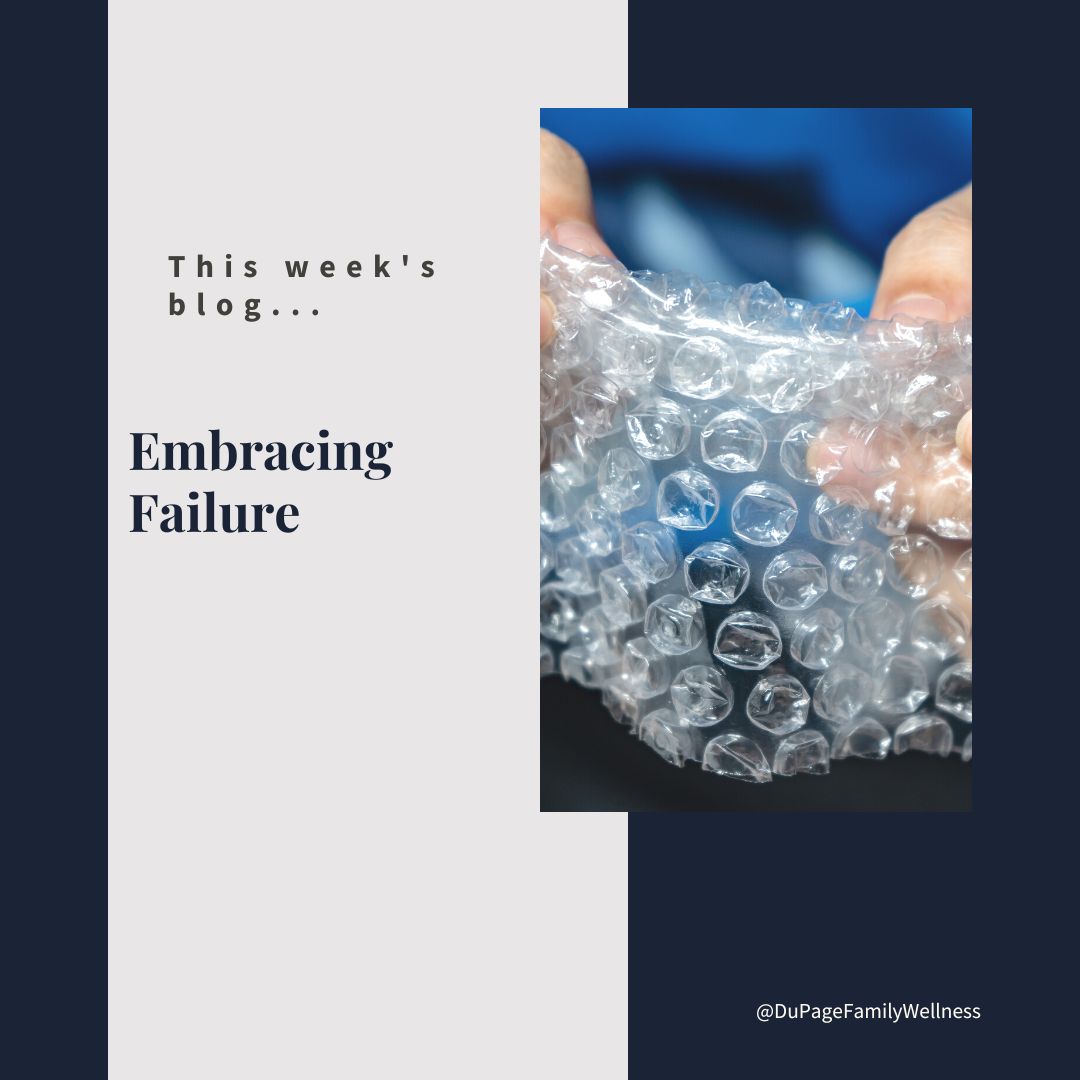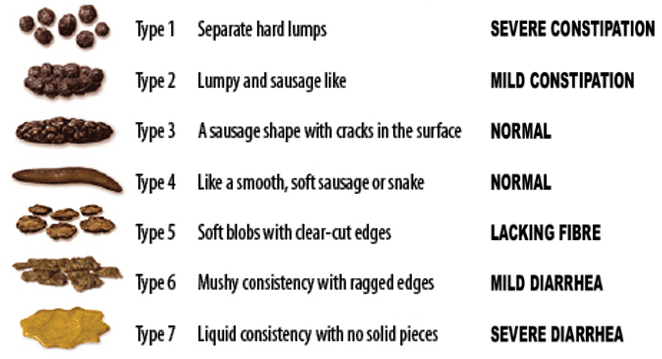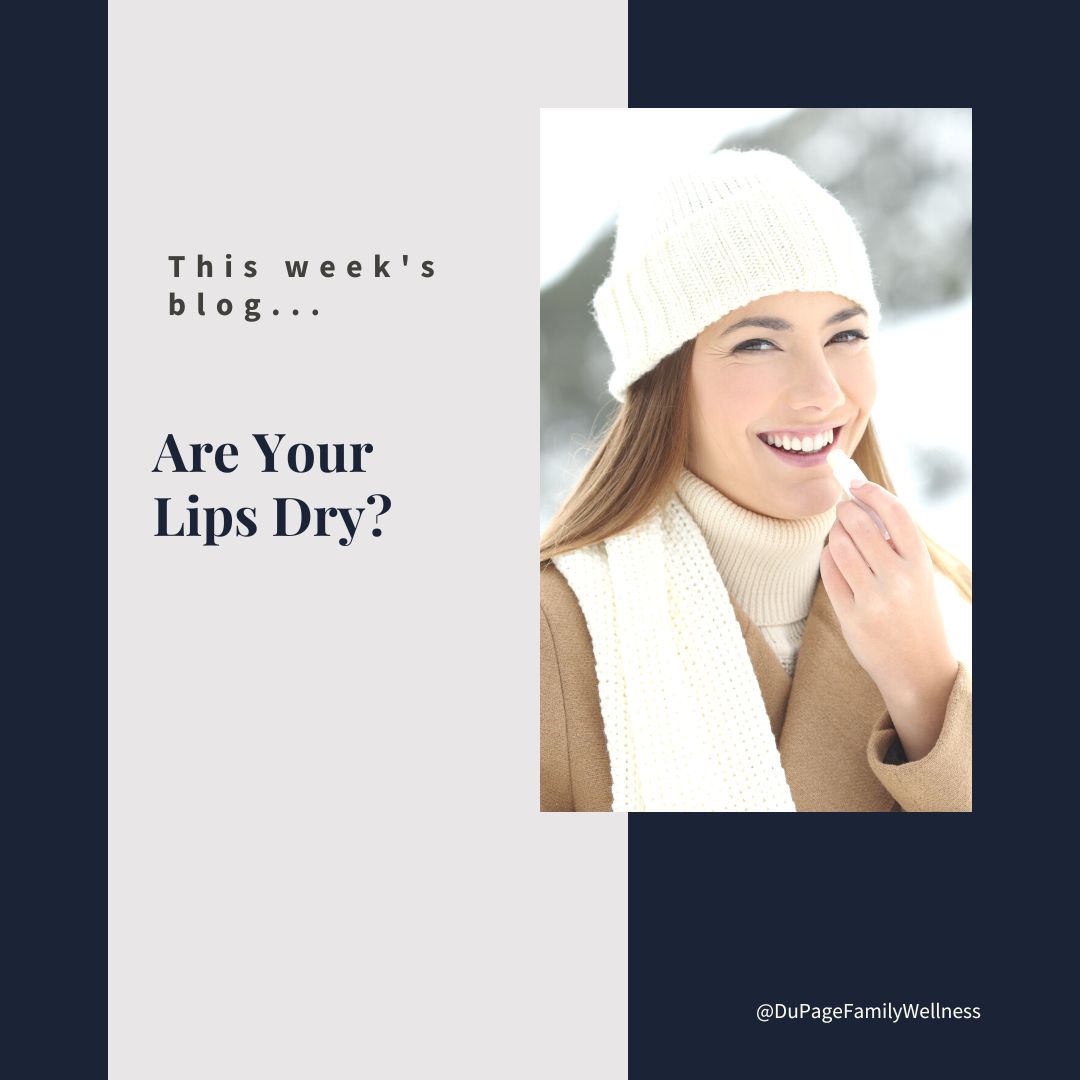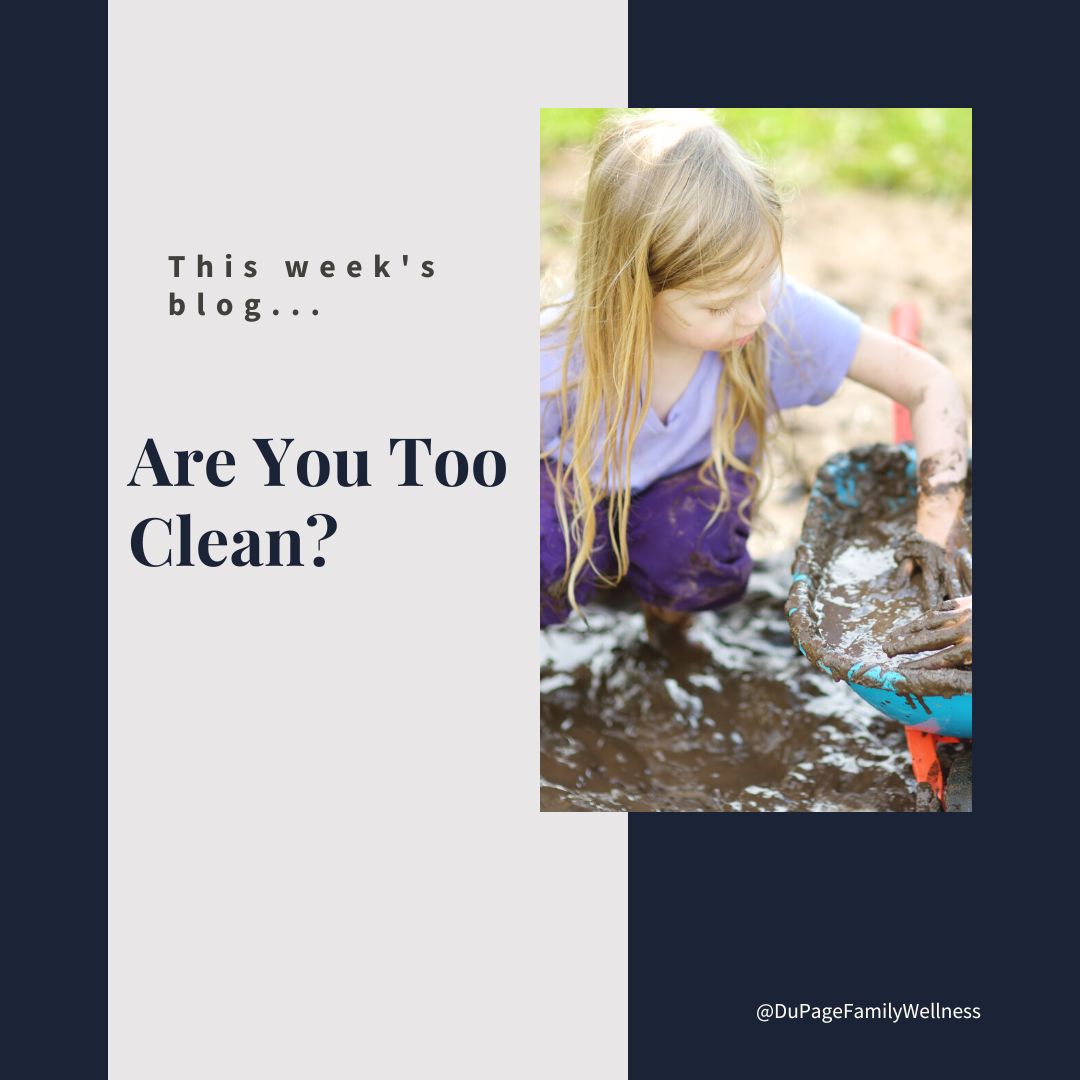 As many of you know, Dr. Jamie's mother passed away on Monday. The kind words and understanding that you have given at this time are truly appreciated.
As many of you know, Dr. Jamie's mother passed away on Monday. The kind words and understanding that you have given at this time are truly appreciated.
This blog article, "Moving Through Difficult Emotions," has been sent out before but seems appropriate to revisit.
-Carolyn
Moving Through Difficult Emotions
Growing up, we often get the message that it’s not okay to experience “negative” emotions. Sometimes the message is harsh and clear through words like “don’t cry like a baby” or “grow up”.
Sometimes it is more subtle. Well-meaning people say things like “Don’t cry honey, you’re okay”. Other times they may use distraction techniques to prevent you from feeling difficult emotions.
All these methods, whether well-intentioned or not, can lead to us avoiding negative emotions. But these emotions don’t simply go away when we ignore them. It is important to learn how to embrace and work through difficult emotions in a healthy way. Let’s look at what that means so that we can live an authentic full life.
Importance of Embracing Difficult Emotions
According to researcher and author Brene Brown, “We cannot selectively numb emotions, when we numb the painful emotions, we also numb the positive emotions.”
In other words, if we want to feel love, joy, peace, and fulfilment, we must also have the capacity to feel loneliness, sadness, anxiety, and emptiness. We cannot fully feel the “positive” emotions without making room for the “difficult” ones.
Messages Our Emotions Give Us
All our emotions are valuable and provide insightful information if we learn to listen to them. If we pay attention to how we feel when we are with different people in our lives, we can learn a lot about those relationships.
For example, if we feel great love towards someone, we can recognize that the relationship is important to us. But difficult emotions can indicate that as well. Imagine that you are hurt because a friend didn’t follow through on a promise. This difficult emotion may show you that you generally trust and value this friendship, so it is especially painful when they let you down.
Another emotion that gives us valuable information is our anger. Often our anger tells us that someone has crossed our boundaries. When we take a moment to recognize our anger and ask what boundary has been crossed, we are more likely to be able to handle the situation constructively.
Working Through Difficult Emotions
Once we realize how valuable our emotions are, it is important to learn how to work through the difficult ones. Here are some steps to handling these important, but difficult emotions.
- First, allow yourself to truly feel your emotions. We often try to resist difficult emotions, but this causes more suffering. Embrace each emotion, welcoming the message that it brings to you.
- Name your emotions and be with them. Don’t try to rush through uncomfortable feelings. Often they will sweep over you like a wave and then pass.
- Notice where you feel it in your body. Does your heart feel heavy? Is your jaw clenched?
- If you get stuck in an emotion, doing something constructive, creative, and engaging can be helpful - things like art, reading, cooking, yard work, movement, meditation, mindfulness, or conscious breathing.
Read more ...
 In 1957, Alfred Fielding and Marc Chavannes tried to invent a 3-D wallpaper. They sealed two plastic shower curtains together by heat. The results were disappointing, and it was a complete failure as wallpaper.
In 1957, Alfred Fielding and Marc Chavannes tried to invent a 3-D wallpaper. They sealed two plastic shower curtains together by heat. The results were disappointing, and it was a complete failure as wallpaper.
A decade later Spencer Silver attempted to make a strong adhesive for the space industry. He was unsuccessful and ended up with a weak adhesive that peeled off without leaving a residue.
Failing can be a painful experience, leading to embarrassment and shame. However, the “failures” mentioned above are the reasons we have bubble wrap and post-it notes today. These mistakes were turned into something useful, but even if they were not, the failure would still be valuable.
Let’s explore why many leaders believe that failing is a step on the path to greatness.
Don’t Play it Safe
Elon Musk has a strong history of failure. It is interesting to see how many challenges he had on the way to his success. You can read about his journey in the article here. Because he understands the benefit of taking risks, he explains that in his companies "Failure is an option... If things are not failing, you are not innovating enough."
Achieving greatness inherently comes with the risk of failure. If you embrace failure as a part of learning, you will not need to play it safe. You will be free to try innovative ideas with the potential for huge success.
It is okay to try, fail, learn, and try again. If you never fail, your goals may be too small. This might keep you from failure but will also limit your growth.
Fail Forward
Think about one of your greatest achievements. Did you accomplish it easily without any challenges? Probably not. When you persevere despite failure, you can apply the knowledge you have gained through your mistakes. Winston Churchill said, "Success consists of going from failure to failure without loss of enthusiasm."
It is hard to face the disappointment of one mistake after the other, but perseverance may make all the difference. Consider the fact that Howard Schultz was rejected for a loan 242 times before he secured the funds to start Starbucks.
Are you a Failure
Many of the most successful people were initially considered failures. Just look up the history of the Beetles, Walt Disney, and Oprah Winfrey. They didn’t give up when they were not recognized for their brilliance. J.M. Barrie, the author of Peter Pan, had a unique perspective on failure, saying, "We are all failures - at least the best of us are.”
These celebrities must have had a growth mindset that gave them the fortitude to persevere. This type of mindset focuses on the ability to improve and progress, instead of the limiting belief that you are born with set abilities that limit your capacity for success.
If you are interested in developing a growth mindset, check out Carol S. Dweck's amazing book "Mindset: The New Psychology of Success."
What would you do if you knew you wouldn’t fail? Embracing the possibility of failure can free you up to take chances and pursue your passions. When you realize that failure has a purpose, it will make persevering a little bit easier.
Dr. Jamie
*I earn a small commission on qualifying purchases as an Amazon Associate.
 Most of us have been taught, in subtle ways, to ignore our bodies. These unintended lessons were primarily given to us by well-intentioned adults when we were very young. We were expected to follow the structure of the day regardless of the sensations we felt in our bodies.
Most of us have been taught, in subtle ways, to ignore our bodies. These unintended lessons were primarily given to us by well-intentioned adults when we were very young. We were expected to follow the structure of the day regardless of the sensations we felt in our bodies.
As adults, many of us continue to dismiss what our bodies are telling us. We go through the day chipping away at our to-do lists without paying attention to any inconvenient sensations we are feeling.
While we cannot be led by every feeling, if we consistently ignore the body's messages there may be a price to pay. Slowing down for just a moment to notice these signals will help us honor and take care of our bodies.
Ignoring Our Bodily Sensations
Do you remember the scene in Wonder Woman where Diana asks why Steve's watch is ticking? Steve explains, “Because it tells time. When to eat, sleep, wake up, work.” She responds with a simple, “You let this little thing tell you what to do?”
We can learn a lot from her response, but first, let’s look at the ways you may have been taught to ignore your body.
- Having to wait until mealtimes to eat.
- Being required to clean your plate.
- Waiting to go to the bathroom until between classes.
- Being taught to hold back when you have to pass gas.
- Having our feelings minimized, dismissed, or punished.
- Being pushed to keep going when we were tired and in need of rest.
What About Learning Self Control?
Many people think children need to learn these lessons to function properly in the world. While there is some truth to that, there is a way to honor both the body and social norms.
We don’t need to follow these sensations impulsively. It is possible to recognize what our body is telling us without acting upon it. When we recognize its messages and consciously choose our response, we honor our body.
Examples of Honoring the Body in Daily Life
Listening to your body can help you function at a higher capacity in the long run. Noticing the little things your body is telling you now can help you pay attention to sensations that could alert you to significant health issues later. Let’s look at some ways that you can honor your body and still function in our society.
You are exhausted when you wake up in the morning but have to get to work.
- Take a moment to recognize how your body feels - Do you have itchy eyes, a heavy head, an aching body, etc?
- Assess the situation - Can you do anything to get more rest now? If not, that’s okay. Just recognize both what your body is telling you and the reality of the situation.
- Make a plan - If you can’t respond to this message now, you may decide to honor your body by going to bed early that evening. Or you could do something relaxing (or energizing) during lunch.
- Note - If sleep is difficult for you check out Are You in a Sleep Deficit and The Magic of an Oura Ring.
It is time for lunch, but you are not hungry.
- Take a moment to recognize how your body feels - Is your stomach rumbling? Are you having trouble focusing? Are you lightheaded or shaky?
- Assess the situation - Is this your only chance to eat or can you push lunch back a while?
- Make a plan - If your lunch consistently comes before you are hungry, consider rearranging your day. If that is not possible, perhaps you can eat a light lunch and plan to have a snack in the afternoon.
- Note - People with certain medical conditions or mental health concerns will have to take special precautions (those with diabetes or anorexia, those with a history of trauma, etc). If you are dealing with any of these issues, please feel free to talk with me. I will try to connect you to some helpful resources.
Read more ...
 Did you know that four bags of poop were left by astronauts on the first trip to the moon? We don’t often talk about poop, but it is a normal part of life for everyone on Earth and in space.
Did you know that four bags of poop were left by astronauts on the first trip to the moon? We don’t often talk about poop, but it is a normal part of life for everyone on Earth and in space.
Poop should be a daily part of life, so why are we uncomfortable talking about it? One theory is that our disgust for poop is an evolutionary trait that has protected us from exposure to parasites and bacteria that can lead to disease.
While there are benefits to this disgust, a lack of openness can leave us wondering if what we are experiencing is normal. This may cause us to overlook important messages the body is giving.
The frequency and consistency of our poop are great indicators of our digestive health which has a tremendous impact on our overall health. So, let’s shake the awkwardness of the conversation so we can know how to listen to our body.
The Basics
Ideally, we will have smooth soft poop that doesn’t fall apart when the toilet is flushed. It should be a chocolatey brown color like that of a Hershey bar. Bowel movements should not have a very strong odor or be difficult to wipe.
Since bowel movements are one of the body’s ways of eliminating toxins, it is important to have one to three bowel movements consistently each day. It should not hurt to poop, and you shouldn’t have to strain. Doing so can lead to hemorrhoids, prolapse, and other problems.
When we consider the form of our poop, the Bristol Stool Chart is a helpful tool. This chart was developed by Stephen Lewis and Ken Heaton at the Bristol Royal Infirmary. It is a diagnostic tool that classifies human feces into seven forms.

Cabot Health, Bristol Stool Chart / CC BY-SA (https://creativecommons.org/licenses/by-sa/3.0)
Reading the Signs
Once you notice that you are not having ideal bowel movements, you can start working on a solution. Here are some reasons for the symptoms you may be experiencing.
- Soft poop - may indicate that you are not eating enough fiber.
- Hard poop - may indicate that you need to drink more water.
- Dark poop - could indicate bleeding in the GI tract.
- Light poop - could indicate malabsorption.
- Not frequent - less than one bowel movement a day is a sign of constipation.
- Too frequent - three bowel movements a day is considered diarrhea.
- Smell - poop doesn’t smell great, but it should not smell terrible either. It could be a sign of a heavy toxin burden if it does.
It may be important to work with your doctor if you are experiencing any of these trouble signs. While the information above can be a good starting point, there are many other things these symptoms can indicate (bacteria, parasites, thyroid trouble, etc.).
Squatting
A study done by Dov Sikirov found that squatting is the most effective way to eliminate poop without straining. It is thought that squatting relaxes the muscles and provides a straighter pathway which allows things to flow better.
The Squatty Potty is a modern toilet stool that allows you to get in a squat position while sitting on the toilet. It was created by a family who was trying to help a loved one dealing with constipation.
In addition to having a great product design, they are known for their educational, funny, and slightly inappropriate commercials.
Read more ...
 Winter can be one of the hardest parts of living in the Midwest. The cold temperatures and wind make staying warm a challenge. It is helpful to bundle up, but we generally don’t cover our faces. This can leave our lips chapped, cracked, or even bleeding.
Winter can be one of the hardest parts of living in the Midwest. The cold temperatures and wind make staying warm a challenge. It is helpful to bundle up, but we generally don’t cover our faces. This can leave our lips chapped, cracked, or even bleeding.
Since the lips have some of the highest concentrations of receptor cells in the body, it can be especially painful. Many people are drawn to chapstick to relieve the discomfort, while others prefer to avoid using lip balm.
When we understand and address the underlying factors, we can often resolve the issue with some simple changes. Most cases can be handled inexpensively at home without any medical care.
Let’s look at the factors that contribute to dry lips and what we can do about it.
Dehydration
It is pretty clear that chapped lips are a result of not having enough moisture, but why are lips so vulnerable? Dermatologist Ife Rodney explains that “because of the quick turnover of skin cells on the lips, you’re more prone to dryness if you aren’t properly hydrated.”
It makes sense that staying hydrated would have a major impact, but it can be difficult to stay hydrated just by drinking enough water. Getting enough minerals with your water is crucial to keeping your body fully hydrated. It is one of the reasons that I rarely drink plain water.
If you need to work on your hydration, check out the following blogs...
Environment
A dry environment can contribute to chapped lips. Using a humidifier can help provide moisture in the air to combat this problem, but it is important to do it in a way that doesn’t cause other problems.
Cool mist humidifiers safely provide moisture in your air provided you follow the manufacturer’s directions. It is important to use fresh water, wipe up any spills, and clean the humidifier regularly to prevent any bacteria or mold growth.
It is also crucial to make sure the humidity in the air stays between 30-50%. Mold can begin growing in the environment if it gets above these levels and presents a significant risk to your health.
If you need a good humidifier, check out the following options…
Lip Balm
According to dermatologist Dr. Rogers a lot of lip care products contain irritating ingredients. She explains that “while they may temporarily soothe your lips, they can ultimately cause so much irritation and dryness that it creates the need to reapply the lip balm frequently.”
The American Academy of Dermatology recommends avoiding ingredients such as fragrances, flavorings, salicylic acid, and lanolin as they exacerbate dryness. Instead, choose ones that contain ceramides, hemp seed oil, dimethicone, mineral oil, and shea butter.
The key, according to dermatologist Dr. Awan, is to get lip balm that attracts and seals in moisture. He encourages people to avoid lip care products that contain ingredients that give a cooling or tingling effect such as peppermint, camphor, and menthol. These irritants likely explain why people get addicted to it.
If you want to try a very different type of lip balm, check out the link below. Instead of the typical fruity flavor, it tastes more like a pot roast!
Other Factors
In addition to lip balm, anything that comes in direct contact with your lips can impact their moisture. It’s easy to believe that spicy and salty foods tend to have a drying effect, but did you know your saliva can irritate them too?
Read more ...
 Over 25% of adults in America self-report having seasonal allergies. Additionally, over ten percent have a positive antinuclear antibody (ANA) which is an indicator of autoimmune disease. These concerning numbers only seem to be growing.
Over 25% of adults in America self-report having seasonal allergies. Additionally, over ten percent have a positive antinuclear antibody (ANA) which is an indicator of autoimmune disease. These concerning numbers only seem to be growing.
Both disorders are caused by an immune system that is malfunctioning. Allergies are an immune response that confuses a harmless substance with a dangerous one. Autoimmune diseases occur when an overactive immune system creates antibodies that attack the body.
Why are cases of seasonal allergies and autoimmune diseases growing? Is there something in our modern world that leads to their development? What can we do about it?
It is a complicated topic with lots of nuances, so be sure to read to the end where application steps will be suggested.
Hygiene Hypothesis
One theory is called the “hygiene hypothesis.” It was originally based on a study in Britain where immunologist David Strachan found a lower prevalence of hay fever in children being raised in large families than those in small ones. He concluded that the germs they were exposed to from older siblings at an early age increased the effectiveness of their immune system protecting them from allergies.
In 1968, Kiviloog L. Irnell studied the difference in asthma rates between those living in rural areas and those living in urban areas in Sweden. He found the prevalence of asthma was lower for those living in rural areas (1). Similar results were found when comparing native tribes living traditionally in rural areas of Canada and Caucasian Canadians in urban areas. It was found that the native population had a lower frequency of allergies and a higher prevalence of helminth infestation (2).
One especially interesting study looked at those in Eastern and Western Germany after the “Fall of the Iron Curtain.” Researchers thought the increased pollution in Eastern Germany would result in more cases of allergies. Surprisingly they found the opposite. Better sanitation and hygiene were “positively associated with atopic diseases (3)".
Many scientists interpret these findings to indicate that there is a benefit of increased exposure to microorganisms. They believe the diversity in gut flora and helminth parasites that are a result of this exposure, act as protective agents. Please know that this does not mean we should stop valuing cleanliness or intentionally expose ourselves to illness. Keep reading to understand the practical steps that you can take to apply this knowledge responsibly.
The Value of Microorganisms
In the case of allergies, the immune system over-responds to harmless substances like certain foods and environmental substances. With autoimmunity, the body begins to attack its own cells resulting in diseases such as diabetes, rheumatoid arthritis, psoriasis, multiple sclerosis, lupus, celiac, and Hashimoto disease.
Some scientists believe that since our bodies evolved with the presence of microorganisms, they are used to processing them. Scientist Graham Rook calls these microorganisms “Old Friends." With lower levels of microorganisms in the body, the immune system does not have enough to do and overreacts. Other scientists believe that these early exposures simply train the immune system not to overreact. Either way, preventing the immune system from responding excessively will lead to better outcomes.
Read more ...
 As many of you know, Dr. Jamie's mother passed away on Monday. The kind words and understanding that you have given at this time are truly appreciated.
As many of you know, Dr. Jamie's mother passed away on Monday. The kind words and understanding that you have given at this time are truly appreciated. 

 In 1957, Alfred Fielding and Marc Chavannes tried to invent a 3-D wallpaper. They sealed two plastic shower curtains together by heat. The results were disappointing, and it was a complete failure as wallpaper.
In 1957, Alfred Fielding and Marc Chavannes tried to invent a 3-D wallpaper. They sealed two plastic shower curtains together by heat. The results were disappointing, and it was a complete failure as wallpaper.  Most of us have been taught, in subtle ways, to ignore our bodies. These unintended lessons were primarily given to us by well-intentioned adults when we were very young. We were expected to follow the structure of the day regardless of the sensations we felt in our bodies.
Most of us have been taught, in subtle ways, to ignore our bodies. These unintended lessons were primarily given to us by well-intentioned adults when we were very young. We were expected to follow the structure of the day regardless of the sensations we felt in our bodies.  Did you know that four bags of poop were left by astronauts on the first trip to the moon? We don’t often talk about poop, but it is a normal part of life for everyone on Earth and in space.
Did you know that four bags of poop were left by astronauts on the first trip to the moon? We don’t often talk about poop, but it is a normal part of life for everyone on Earth and in space.  Winter can be one of the hardest parts of living in the Midwest. The cold temperatures and wind make staying warm a challenge. It is helpful to bundle up, but we generally don’t cover our faces. This can leave our lips chapped, cracked, or even bleeding.
Winter can be one of the hardest parts of living in the Midwest. The cold temperatures and wind make staying warm a challenge. It is helpful to bundle up, but we generally don’t cover our faces. This can leave our lips chapped, cracked, or even bleeding.  Over 25% of adults in America self-report having seasonal allergies. Additionally, over ten percent have a positive antinuclear antibody (ANA) which is an indicator of autoimmune disease. These concerning numbers only seem to be growing.
Over 25% of adults in America self-report having seasonal allergies. Additionally, over ten percent have a positive antinuclear antibody (ANA) which is an indicator of autoimmune disease. These concerning numbers only seem to be growing.